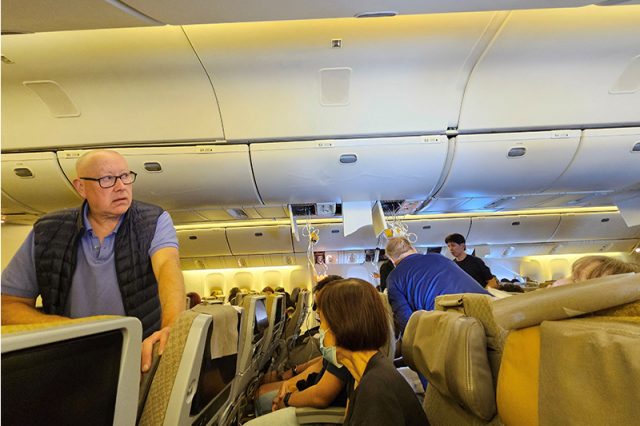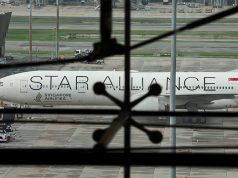
Passengers injured by severe turbulence on a Singapore Airlines flight on Tuesday are likely eligible for compensation, but the amount each receives could differ dramatically even for identical injuries due to an international treaty.
One passenger died and the airline said 30 passengers were treated for injuries after a flight from London to Singapore made an emergency landing in Bangkok on Tuesday. Samitivej Hospital said it was treating 71 passengers.
READ: Shaken passengers arrive in Singapore after turbulence-hit flight | Singapore Airlines flight makes emergency landing in Bangkok, one dead, 30 injuries reported
Under the Montreal Convention, Singapore Airlines is liable for accidents, which can include turbulence, on international flights regardless of whether the airline was negligent, according to U.S. aviation lawyers. If passengers file a lawsuit, the airline cannot contest damages up to around $175,000.
If a passenger seeks larger damages, Singapore Airlines can try to limit liability by proving it took all necessary measures to avoid the turbulence, said Mike Danko, a California attorney who represents passengers. He said airlines rarely prevail on such arguments.
Danko said the airline can also limit their liability by showing the passenger bore some of the fault for the injury, such as by ignoring warnings to wear a seat belt.
The size of damages often comes down to the country where the case is filed and how the legal system assesses the amount of compensation.
“First and foremost what is the jurisdiction where you can bring a claim and how do they value injury claims,” said Daniel Rose, a New York attorney with Kreindler & Kreindler, which represents passengers.
For example, U.S. juries have awarded passengers more than $1 million for the emotional trauma of severe turbulence, while many courts in other countries award far less if anything for similar emotional distress.
The Montreal Convention sets out various rules for determining where a claim can be brought, which can depend on the destination, where the ticket was purchased and the residence of the passenger.
Tuesday’s flight departed from London bound for Singapore and carried passengers from around the world.
Aviation attorneys said British passengers on a round-trip ticket originating in London could file a claim in UK courts. Others might have been planning to catch a connecting flight to return home to Indonesia, where they would have to bring their claim. As a result, claims might differ widely in value for the same injury.
Curtis Miner, a Florida attorney who represents passengers, said the 2013 crash of an Asiana Airlines plane in San Francisco resulted in injured passengers with widely varying compensation because many were flying round-trip originating from various East Asian cities.
“The passengers were from all over the place,” said Miner. “So people who may have had similar injuries, some could bring their case in San Francisco but others who were not able to.”
—Reporting by Tom Hals in Wilmington, Delaware; Editing by Stephen Coates









